Angels | Far Cry Wiki
Angels
Affiliations
Project at Eden’s Gate
Weapons
- Shovel
- Garden Hoe
- Hammer
- Knife
- Rocks
Angels are former civilians or resistance members that have been placated through extreme doses or exposure to the powerful hallucinogenic drug Bliss. Angels have lost all capability to think or reason, except to mindlessly follow the orders of Faith Seed and the Peggies.
While they appear more commonly in the Henbane River region where Faith is found, they might also be found in other areas.
Appearance
Angels appear wearing dirty all-white outfits, with filthy surgical masks over their mouths, and having milky white eyes from exposure to Bliss. They can be easily recognized at range by: Bliss vapors over their head, their white outfits, using only melee equipment, such as Shovel, garden rake, hunting knife, hammer and throwing rocks in long range. They can be audibly identified from their incoherent mumbling and loud screams when attacking opponents.
They share the ‘crown’ HUD icon with cult VIPs, which appears when they are marked as spotted, as well as an ambient green mist around them from the Bliss that disappears when they die.
Angels can easily be mistaken for zombies, due to their mindless shuffling and performing menial labor for the cult. Their zombie-like behavior also extends to taking damage; when firing at the angels, they will usually fall down, and ‘play dead’ for several moments before ‘reanimating’ and continuing to attack. Even the spotting icon will disappear before they reanimate which can trick inexperienced players. Angels can be surely defeated with a shot to the head from a high-power weapon, or through takedowns.
Trivia
- Angels are capable only of melee attacks. They yell when they find the Deputy to alert other angels and cultists to their location.
- When out of melee range, Angels will throw rocks at the Deputy which will deal a small amount of damage.

- In groups, the rocks thrown by angels can whittle the deputy down to nothing in a matter of several hits, making groups of angels that are out of melee range deadlier than those up close.
- Angels are created out of those who resist Faith’s attempts at mind control through heavy doses of Bliss.
- According to a recording of Faith, the angels might have had their mouths surgically altered during their torture (listen to the voice message from Faith Seed at Whistling Beaver Brewery). This might also explain why they wear surgical masks.
- After completing Doctor Lindsay’s missions, bait can be used to distract Angels.
- Angels will sometimes ignore the player and not attack unless provoked or approached at very close range. This is most common when the Angel is gardening or doing some other task.
Gallery
Angels as appears in Far Cry 5 key art
Blood Dragon 3 — Henbane River — Side Missions | Far Cry 5
Guide Info
Favorite
Choose from over 100 Games at the Ubisoft Store!
By
Ben Chard
| Mission Acquisition | Rewards |
|---|---|
| Guy Marvel, upon completion of Quiet on the Set | 200 RP, $1400 |
Subscribe to Premium to Remove Ads
View Full-size
12
(1 of 2) Return to Guy Marvel at the Grimalkin Radon Mine
View Full-size
View Full-size
Return to Guy Marvel at the Grimalkin Radon Mine (left), he needs you to perform some action scenes for him. (right)
(right)
Go find some Angels¶
Upon completion of the Quiet on the Set mission, return to Guy Marvel in the now open Grimalkin Radeon Mine to discover that he’s all alone. He wants you to help him film a set piece for his movie by performing a number of stunts. First however, you’ll need to go and recruit the “extras”.
Subscribe to Premium to Remove Ads
Head outside the mine and to the east where the nearby Bliss field is to find some Angels. Attract their attention and then lead them back to the mine to begin the action sequence. You’ll have to kill the Angels in a number of ways to satisfy Guy’s artistic vision.
Perform 3 headshots¶
This one is easy enough, equip a weapon you’re comfortable with (although a Handgun is the easiest) and defeat three Angels with headshots to satisfy this objective.
Subscribe to Premium to Remove Ads
Kill an Angel with fire¶
As long as the Angel is on fire then you will pass this objective. Equip a Molotov if you have one and toss it at an Angel, this is by far the easiest way to achieve this. If you need any Molotovs, you’ll find some on the table below where Guy is stationed.
If you need any Molotovs, you’ll find some on the table below where Guy is stationed.
View Full-size
Molotov Cocktails are effective for killing an Angel with fire.
Subscribe to Premium to Remove Ads
Kill an Angel with a Melee Weapon¶
Another simple one, equip any Melee Weapon on you (or pick one up off the previously mentioned table) and begin swinging at the Angels. As long as one falls to your wild swinging, the objective is complete.
Kill an Angel by explosion¶
Probably the easiest of them all, equip a Proximity Explosive and toss it into the vicinty of the Angels to explode them, completing the objective in the process.
Subscribe to Premium to Remove Ads
Perform Death from Above¶
This is the trickiest one, you’ll need to position yourself above the Angels in this area and then drop onto them to perform the Death from Above Takedown. This can take time to set up so be patient as you wait for the perfect moment to drop on to one.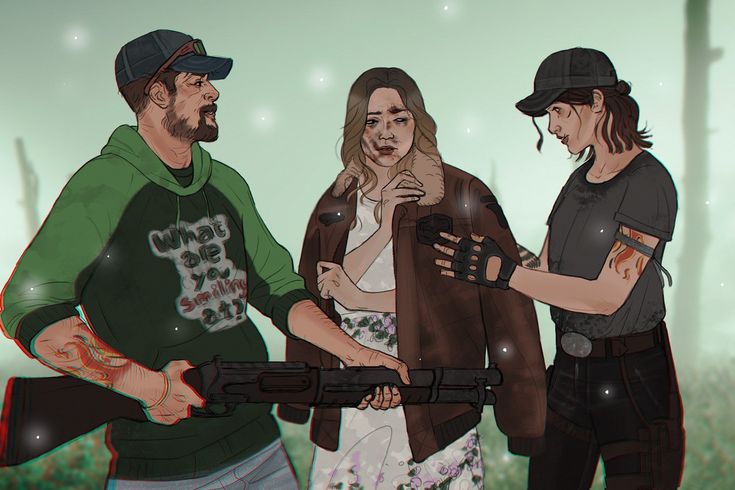 Once you fulfil all of the objectives, the mission concludes and a masterpiece is created.
Once you fulfil all of the objectives, the mission concludes and a masterpiece is created.
View Full-size
Wait until an Angel is under you before dropping on him for a Death from Above Takedown.
Subscribe to Premium to Remove Ads
90,000 Angel flees from Russia. Alexander Sobolev’s second novel
A strange company is trying to illegally move from Bolshevik Russia to Finland. The widow of an innocently shot Vologda intellectual, her distant relative is an enterprising gentleman from Petrograd, her little daughter, who is called Stacey in the English manner, and a lady connected with this family by incomprehensible ties, posing as the author of the magazine «Sincere Word». This lady looks like a wounded angel depicted by the Finnish symbolist Hugo Simberg, and a picture with a similar plot, written by a certain Frenchman, the fugitives from Petrograd want to take to Finland, rolling it up as if it were a carpet.
A character in the new novel by philologist Alexander Sobolev «The Shadow over the Right Shoulder» (Ivan Limbach Publishing House) will find in a Viennese second-hand bookstore the handwritten memoirs of one of the participants in this escape from the Land of the Soviets. In the fantasy world of Sobolev’s first novel, The Griffins Guard the Lyre (2021), the Bolsheviks failed to seize power, and in the middle of the 20th century Russia looks much the same as it did at the beginning of the 20th century. This time there is no one to stop the red wheel, and the author of the amazing manuscript reflects on who is to blame for the Russian disaster. Perhaps these are liberal publicists like the Vologda revolutionary Alceste, who dreams of those times when, along with the autocracy, the entire thousand-year-old way of life will be destroyed? The oak of the Russian state is falling, and they, even having lost everything and ended up in exile, do not dare to admit that they are involved in the tragedy.
In the fantasy world of Sobolev’s first novel, The Griffins Guard the Lyre (2021), the Bolsheviks failed to seize power, and in the middle of the 20th century Russia looks much the same as it did at the beginning of the 20th century. This time there is no one to stop the red wheel, and the author of the amazing manuscript reflects on who is to blame for the Russian disaster. Perhaps these are liberal publicists like the Vologda revolutionary Alceste, who dreams of those times when, along with the autocracy, the entire thousand-year-old way of life will be destroyed? The oak of the Russian state is falling, and they, even having lost everything and ended up in exile, do not dare to admit that they are involved in the tragedy.
Unbelievable and instructive events are taking place in Russia, and supernatural forces intervene in the life of the inhabitants of the novel «Shadow on the Right Shoulder». But only people endowed with special sensitivity will be able to guess the true nature of the modest writer, the author of the journal «Soulful Word», who, in a petty-bourgeois dress, so as not to arouse the suspicion of Bolshevik patrols, leaves Petrograd.
Alexander Sobolev talks about how «Shadow over the right shoulder» appeared.
– How did it all start? Is it from Hugo Simberg’s painting «The Wounded Angel»?
— No matter how trite it sounds, but the very first episode that came through, from which the plot of the book began, is a letter in a bottle (later it did not completely disappear, but was relegated to the very periphery of the text). Around him, another story began to grow: there was a prostitute who came on a call to a cripple; a visionary who sees devils climbing through an electrical outlet; a Russian consul in a distant African country, who, due to a shortage of passport forms, writes out to the traveler an accidentally lying document with someone else’s surname … It’s even a pity that these unborn entities will have to wait in line, but at some point the logic of the narrative decreed otherwise and history turned at a fork On the other side. Simberg’s picture appeared much later, when the book had already been entirely invented, and for the most part written.
— Your first novel was in Moscow, and the reader could be convinced that you know and love Moscow very well. In the second, there is no Moscow at all, but there is Petrograd, several European cities, and your heroes spend most of their time in Vologda. Why did you put them there? Can you advise a route through the Vologda places mentioned in the novel? Perhaps an abandoned monastery with an ossuary exists?
When I needed a city known as a place of exile for my story, I chose Vologda without hesitation
— I was in Vologda for the first time in 1991 on academic business, after spending a delightful week in the local regional archive with buggy heating and friendly employees — and then I printed something based on the extracts there. At the beginning of the century there was a large colony of Russian political exiles, from Savinkov to Remizov and Berdyaev. Therefore, when I needed a city known as a place of exile for my story, I chose Vologda without hesitation. To refresh my senses, it took me, while the novel was being written, to go there twice. For thirty years, Vologda has changed dramatically, turning into an excellent city for travel — with just the right amount of tourist gloss, when the hotels are already good, and traffic jams are still small. All the Vologda topography is written out by me in a harsh realistic manner (although probably with flaws inevitable for a stranger), so walking through the places depicted in the book is as easy as shelling pears. From the monument to Batyushkov (whom the sculptor added as a warning a bronze horse that haunted him in the nightmares of recent decades), if you look across the river of the same name to the city, you can see the edge of the house where my unlucky heroes lived. The monastery on the Sukhona seems to have been completely destroyed, but even at the beginning of the twentieth century it existed, although a little to the side — it is described in one of the Vologda travelogues, which I read a lot in preparation for the novel.
To refresh my senses, it took me, while the novel was being written, to go there twice. For thirty years, Vologda has changed dramatically, turning into an excellent city for travel — with just the right amount of tourist gloss, when the hotels are already good, and traffic jams are still small. All the Vologda topography is written out by me in a harsh realistic manner (although probably with flaws inevitable for a stranger), so walking through the places depicted in the book is as easy as shelling pears. From the monument to Batyushkov (whom the sculptor added as a warning a bronze horse that haunted him in the nightmares of recent decades), if you look across the river of the same name to the city, you can see the edge of the house where my unlucky heroes lived. The monastery on the Sukhona seems to have been completely destroyed, but even at the beginning of the twentieth century it existed, although a little to the side — it is described in one of the Vologda travelogues, which I read a lot in preparation for the novel.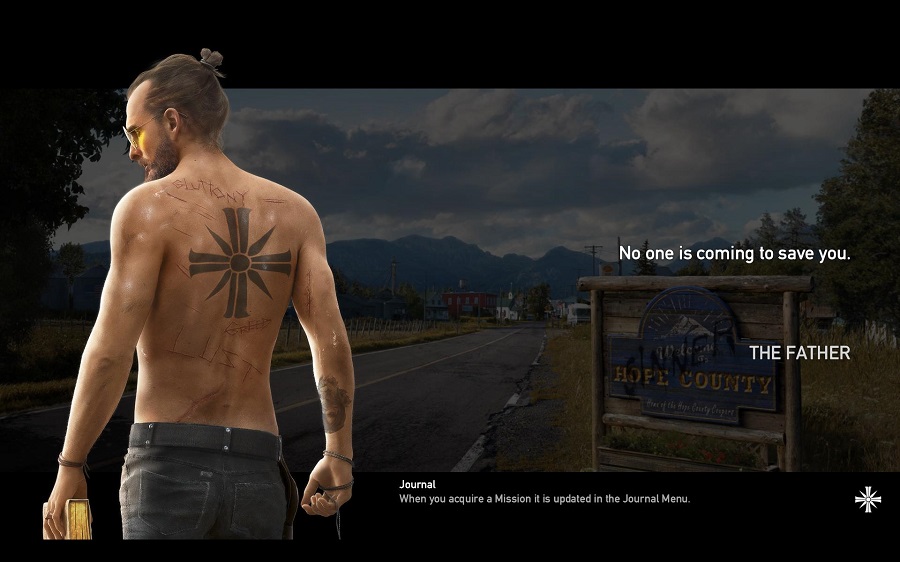 The ossuary is fictional, though still not completely: not far from Kandalaksha there is a strange man-made thing, something in the form of a labyrinth, laid out of stones by primitive northerners for an unknown purpose. She made a strong impression on me at one time — perhaps the story of the unburied bones became its echo.
The ossuary is fictional, though still not completely: not far from Kandalaksha there is a strange man-made thing, something in the form of a labyrinth, laid out of stones by primitive northerners for an unknown purpose. She made a strong impression on me at one time — perhaps the story of the unburied bones became its echo.
— Your character discovers mysterious notebooks in the hands of a Viennese second-hand book dealer and is overcome by the «endorphin wave familiar to every collector.» Is it an echo of some purchase that you have made or that you dream about? Surely, in your collection there are wonderful manuscripts, albeit written by terrestrial beings. Can you tell us about them?
– Oh yes, all the collecting sensations, of course, are written entirely from life. For several years now I have been preparing an extensive publication of manuscript materials from my collection: at first it was supposed to be one, albeit rather corpulent, folio, but as the comments grow, the book threatens to spill over into a second, or even a third volume. Among the memorable manuscripts of my collection are the manuscript of Akhmatova’s collection «Odd», which she once presented to the remarkable philologist G.P. Makogonenko; an early draft of Pilnyak’s novel, four letters from Pasternak, several autographs from Khlebnikov, two letters from Tsvetaeva, a postcard from Yesenin, three poems by Mandelstam, workbooks by Zinaida Gippius — and, of course, quite a lot of material from lesser-known authors.
Among the memorable manuscripts of my collection are the manuscript of Akhmatova’s collection «Odd», which she once presented to the remarkable philologist G.P. Makogonenko; an early draft of Pilnyak’s novel, four letters from Pasternak, several autographs from Khlebnikov, two letters from Tsvetaeva, a postcard from Yesenin, three poems by Mandelstam, workbooks by Zinaida Gippius — and, of course, quite a lot of material from lesser-known authors.
– Collectors and archivists sometimes encounter manifestations of otherworldly forces, as if an invisible hand (guardian angel?) is pushing them to find something. Do you know this feeling?
More than once or twice I have felt that some obscure poor fellow is calling to me from the other side of the fatal line
– There is always a place for mysticism in our profession: the main thing is to keep a cool head while copying the text, and not get too carried away with insights in the final work. On the contrary, archival search itself is not at all alien to methods that would rather stick to treasure-hunting practice: more than once or twice I happened to feel that some obscure poor fellow was calling me from the other side of the fatal line, urgently demanding that his poems be printed or made about him. biographical sketch — and I treat such appeals (as they used to say in the old days) not without respect. Once, however, I dreamed that, having myself found myself in a place of no return, I knocked on the door of Mandelstam’s house for some pressing questions (in a dream, everyone lived there in such huts). «What, again a philologist?» — there was a creaking sound from behind the door … I laughed and woke up.
On the contrary, archival search itself is not at all alien to methods that would rather stick to treasure-hunting practice: more than once or twice I happened to feel that some obscure poor fellow was calling me from the other side of the fatal line, urgently demanding that his poems be printed or made about him. biographical sketch — and I treat such appeals (as they used to say in the old days) not without respect. Once, however, I dreamed that, having myself found myself in a place of no return, I knocked on the door of Mandelstam’s house for some pressing questions (in a dream, everyone lived there in such huts). «What, again a philologist?» — there was a creaking sound from behind the door … I laughed and woke up.
— I’m afraid you’re already tired of comparisons with Nabokov, but I couldn’t help but suspect that the relationship between Seraphim and Stacey is a kind of farcical mirror in which Humbert Humbert and Lolita are reflected. Is this a wild guess or have you thought about it too?
Vologda, early 20th century
— Yes, I also noticed this: in fact, one of the advantages (or, if you like, burdens) of philological training is the ability to find traces that are not too visible: like a dog walking with its owner notices around three times as much as its two-legged companion.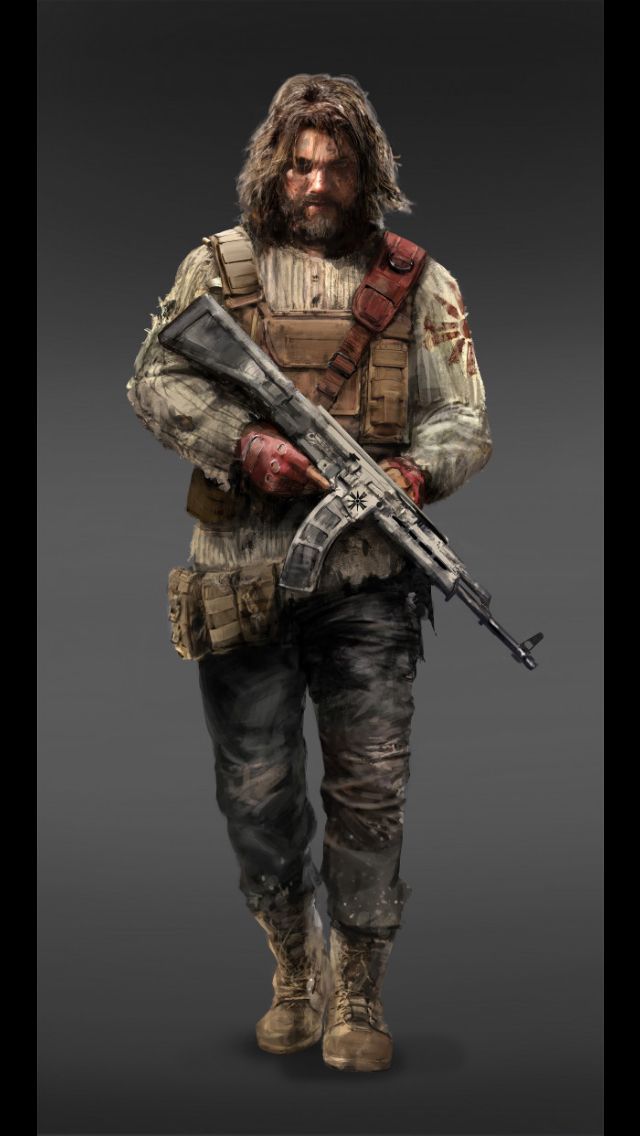 But this does not seem to me fundamental: in this area, I was more interested in the overtones of parental psychosis, familiar firsthand to many mothers and fathers. If, behind the main drawing, another pattern appears in some places — well, the text, by definition, is rather cramped, it happens.
But this does not seem to me fundamental: in this area, I was more interested in the overtones of parental psychosis, familiar firsthand to many mothers and fathers. If, behind the main drawing, another pattern appears in some places — well, the text, by definition, is rather cramped, it happens.
– Stylization, which requires excluding from the text everything that has appeared in the Russian language for more than 80 years, is it difficult? How does the lexical and syntactic filter work? Does it have crashes? Is it an exciting task for a writer or a tedious one? Are you haunted by the fear of making a mistake in describing the realities of the past?
There is a special ambition of the cemetery watchman: to clear and put in order an abandoned grave
– I don’t experience any difficulties of this kind in principle – and not so many words and phenomena have appeared in our lives over the past hundred years. So that the heroes living at 1910s, did not think of using TV and the Internet, it is easy to cope; a little more difficult with car brands and train schedules, but all this can be overcome. I know prices and other household tinsel quite well from the correspondence of that time, which I have been reading on duty for more than thirty years. In general, my main profession often turns out to be useful: for example, when I needed an émigré gymnasium for a plot, I willingly chose Moravska Trebova: several years ago I published the youthful letters of the wonderful poet Anatoly Shteiger to his classmate at this gymnasium, Vadim Morkovin. As it should be for gymnasium students, dozens of classmates were mentioned in their correspondence: trying to comment on the names that were never mentioned in the press, I discovered that the gigantic archival file dedicated to this gymnasium was taken out of Czechoslovakia by the Soviet army and is stored in the Moscow GARF. For several weeks I read it very carefully, so that as a result I managed to flower the material quite picturesquely: in this there is a special ambition of the cemetery caretaker: to clear and put in order an abandoned grave.
I know prices and other household tinsel quite well from the correspondence of that time, which I have been reading on duty for more than thirty years. In general, my main profession often turns out to be useful: for example, when I needed an émigré gymnasium for a plot, I willingly chose Moravska Trebova: several years ago I published the youthful letters of the wonderful poet Anatoly Shteiger to his classmate at this gymnasium, Vadim Morkovin. As it should be for gymnasium students, dozens of classmates were mentioned in their correspondence: trying to comment on the names that were never mentioned in the press, I discovered that the gigantic archival file dedicated to this gymnasium was taken out of Czechoslovakia by the Soviet army and is stored in the Moscow GARF. For several weeks I read it very carefully, so that as a result I managed to flower the material quite picturesquely: in this there is a special ambition of the cemetery caretaker: to clear and put in order an abandoned grave. But I used a lot of extracts and notes made along the way in the novel, so that all the relevant pages are written directly from archival sources — not such a frequent case for literature, by the way! At the same time, of course, you can convict me of a mistake, but why? Roughly speaking, the label of a novelist on the reverse side has an indulgence for absolution of historiographical sins. If, for reasons of artistic truth, I need to move a settlement a hundred versts or reverse the river, I won’t hesitate for a second: this is not a historical monograph.
But I used a lot of extracts and notes made along the way in the novel, so that all the relevant pages are written directly from archival sources — not such a frequent case for literature, by the way! At the same time, of course, you can convict me of a mistake, but why? Roughly speaking, the label of a novelist on the reverse side has an indulgence for absolution of historiographical sins. If, for reasons of artistic truth, I need to move a settlement a hundred versts or reverse the river, I won’t hesitate for a second: this is not a historical monograph.
– Your heroine reflects on the reasons for what happened in Russia in 1917 and comes to the conclusion that revolutionaries and liberal publicists, «a gang of talkers, scoundrels and conspirators» are to blame for everything. I think you will agree with her conclusions. But the reader of Chaadaev, the Marquis de Custine, Herzen and Saltykov-Shchedrin will notice that Russia was a dense and cruel country, and not at all an idyllic kingdom ruined by an evil swarm of liberal newspaper authors.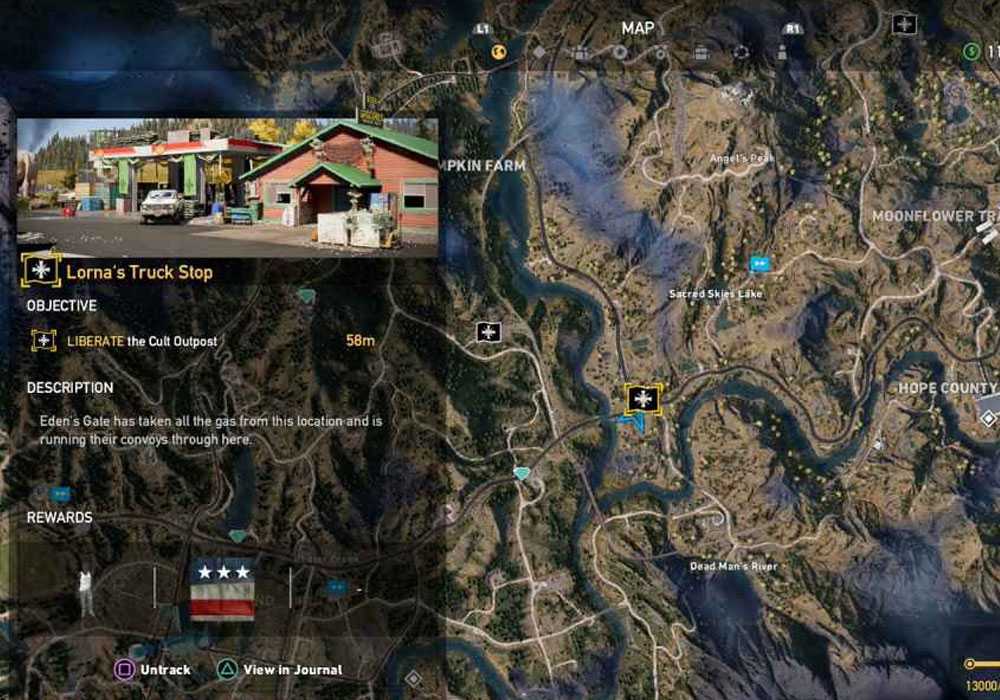 Ready to enter into an argument with him?
Ready to enter into an argument with him?
Irresistible disgust causes me Herzen
– In these cases, it seems to me that Tolstoy is right when he says at the beginning of the third volume of «War and Peace» about the coincidence of minor causes of great events, each of which in itself seems insignificant. (Many years later, something similar will appear with Stephen King: the rarest alchemical combination of simple components will revive an innocent mechanism, making it deadly.) My heroine, by the will of fate (who for her was personified in my person) observed only one side of the picture: if she happened to to be in the family of a tyrant gendarme or a money-loving official, her conclusions would be different — and, moreover, just as irrevocable. In Russian history, as in a great novel, there is everything — both idyll and denseness: excuse, of course, for the truism. I think I would refuse to argue, for the complete uselessness of this lesson, and the corresponding vein is developed in me to a very weak degree. The late Gasparov says somewhere, using Shchedrin’s formula, by the way, that if he had a coat of arms, «Take everything and leave me alone» would be inscribed on it. It’s funny that of the authors you’ve listed, only Herzen evokes insurmountable disgust in me: I’m indifferent to Kyustin, I love Chaadaev, and I often re-read Shchedrin.
The late Gasparov says somewhere, using Shchedrin’s formula, by the way, that if he had a coat of arms, «Take everything and leave me alone» would be inscribed on it. It’s funny that of the authors you’ve listed, only Herzen evokes insurmountable disgust in me: I’m indifferent to Kyustin, I love Chaadaev, and I often re-read Shchedrin.
Alexander Sobolev
— Doctor Velázquez seems at first to be an anecdotal character, a cartoonish decadent, like the artist who «painted a lady with a whip and went mad», but gradually his role changes and he receives the keys to the realm of the dead. Please tell us about the evolution of this hero.
— Yes, you described everything exactly — we saw these evolutions several times at the beginning of the 20th century, when at some point a few idle young people who are not indifferent to literature and art are going to have fun, and all this looks like such a frivolous matter, interspersed with plentiful libations , and suddenly the first untimely death that happened in the company casts a gloomy and deep reflection on everything that happens (and on the art in which they are engaged). The death of I. Konevsky, the suicide of V. Hoffmann, the death of N. Sapunov — all this retrospectively exalted not only their own work, but also the deeds of their entire artistic group. So for my invented hero, the sudden death of his friend (which death he blames himself for, not without reason) turned out to be fatal — and so his subsequent ordeals began.
The death of I. Konevsky, the suicide of V. Hoffmann, the death of N. Sapunov — all this retrospectively exalted not only their own work, but also the deeds of their entire artistic group. So for my invented hero, the sudden death of his friend (which death he blames himself for, not without reason) turned out to be fatal — and so his subsequent ordeals began.
– Who wrote the poem «The movements of the wings are unhurried», allegedly taken from a schoolboy, you? Or is it the work of one of the forgotten poets you study? There are only two stanzas in the novel. What’s next?
— Yes, I wrote it myself, sir, would I, taking advantage of the obscurity of a forgotten poet, appropriate someone else’s text! Here’s a surefire way to summon an unfriendly ghost — writers are notoriously touchy about this. I forgot the beginning of this long-composed rhyme, I lost the recording, and I remember (in addition to those quoted) only the lines «He cuts over the plain / Slow circles / Where the innocent sleep in ignorance / His insignificant enemies», they were not needed for the novel.
Hermes Trigesmegistus is the idol of all occultists. The fifth angel trumpeted
Hermes Trigesmegistus is the idol of all occultists.
When will human “wisdom” realize that it is the laughingstock of demons! And that every “conqueror of nature” follows the rabbinic “wisdom”, which says that the Lord himself in heaven reads the Talmud, standing at attention. When will it become clear that pride is blindness that believes in its sight! This blindness does not even notice the obvious: the incorruption of holiness and the corruption of sin.
The cult of corruption
In the 18th century, Kabbalo-Masonic symbolism likened the noble park to Eden. But it was a strange paradise! Manor estates in Russia filled the artificial ruins of bygone pagan cultures. There was a real cult of decay. Where did he come from?
“Secret Masonic myths say that Hiram, the builder of Solomon’s temple, descended from Cain, who allegedly comes from the connection of Eve with Lucifer. From the connection between Hiram and the Queen of Sheba (also descended from Cain), an eternal squad of workers must come, which will gather in his name at all times. So writes the Masonic historian Lecute. And this means that the children of the widow of the murdered Hiram must avenge the murder forever. [63].
From the connection between Hiram and the Queen of Sheba (also descended from Cain), an eternal squad of workers must come, which will gather in his name at all times. So writes the Masonic historian Lecute. And this means that the children of the widow of the murdered Hiram must avenge the murder forever. [63].
Freemasonry has always existed, declared Lessing in the 18th century. Anyway, as an idea. What kind of wonderful idea is this, coming, according to the “children of the widow”, from Cain?!
“None of the mortals knows neither the patronymic, nor the family, nor the tribe of the mysteriously gloomy personality of Adoniram, whose genius is so much higher than the people of the earth, as the top of the highest mountain rises above a small stone, showered with the dust of its foot. This non-human personality breathes with the deepest contempt for the entire human race, and this contempt is legitimate: not from the human race, he who, like a stranger, lives among the children of Adam . .. And in the depths of the fire sparkling with a dazzling brilliance, Adoniram sees the image of a man, but with his greatness immeasurably superior to every mortal. And this image approached him, and said to him this word:
.. And in the depths of the fire sparkling with a dazzling brilliance, Adoniram sees the image of a man, but with his greatness immeasurably superior to every mortal. And this image approached him, and said to him this word:
–
Draw near, my son, come without fear! I breathed on you, and the flame has no power to interrupt your breath.
And in the deadly element for the children of Adam, engulfed in flames, Adoniram found an untested, unheard-of bliss that carried him into the very depths of the fire.
–
Where are you taking me? — asks Adoniram who appeared.
–
To the center of the earth, to the soul of the world, to the domain of Cain’s dominion, with whom freedom reigns inseparably and inseparably. There is the limit of the tyranny of Adonai, the envious God; there, laughing at his impotent fury, we can freely and without hindrance eat from the fruit of the tree of knowledge. There is the kingdom of your fathers.
There is the kingdom of your fathers.
–
But who am I? Who are you? asks Adoniram.
–
I am the father of your fathers, I am the son of Lamech, the grandson of Cain, I am Tubal Cain…
And in the sanctuary of the fiery kingdom Adoniram appeared face to face before the head of his great family. Dennitsa — Lucifer, who gave birth to Cain, reflected on the face of his son the brilliance of all his indescribable beauty and boundless greatness …
–
Listen, my son! A son will be born from you, whom you will not see, and he will produce from you an innumerable offspring. And your race will be immeasurably higher than the breed of Adam, but this breed will subdue your race under its feet. And for many centuries your noble family will give all its courage, all its genius to the charity of the ungrateful and senseless breed of Adam.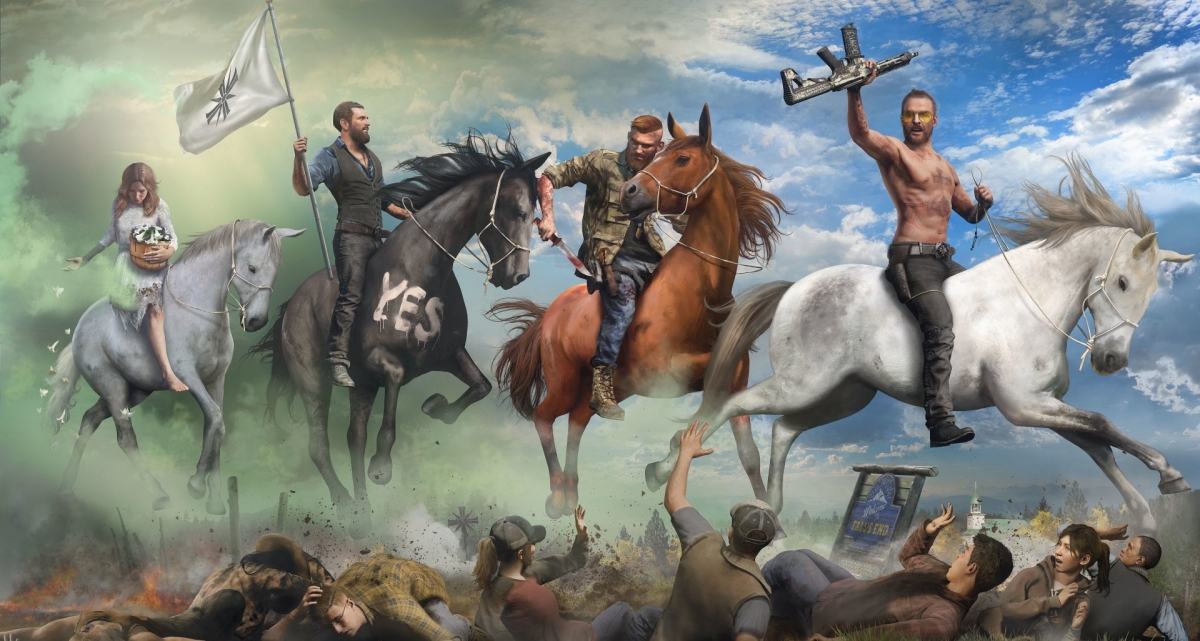 But the day will come — and the best will be the strongest, and they will restore the faith of the lord of Fire. Your children, having united under your name, will smash, like a meager vessel, the power of the kings of the earth, for they are the representatives of Adonai on earth ”…
But the day will come — and the best will be the strongest, and they will restore the faith of the lord of Fire. Your children, having united under your name, will smash, like a meager vessel, the power of the kings of the earth, for they are the representatives of Adonai on earth ”…
This legend, set forth in Anderson’s «Book», is borrowed from the Talmud. It ends with the murder of Hiram-Adoniram. His corpse is found under an acacia bush.
“When the body was removed from the ground, one of the Masters lifted his hand by the index finger, but the skin fell away from the bones and stuck to his hand. Another lifted her by the middle finger, with the same unfortunate result. And, finally, the third Master lifted him by the whole hand, but here, too, the skin moved away from the bones. The master could not lift the corpse in any way and exclaimed: “
Menah
Belah», which means «the body has decomposed.» And this has since become the new secret password of the masters.
Hermes
Hermes
In the heart of the central part of the Peloponnese of Arcadia, which the Greeks called «happy», Mount Kyllena, overgrown with forests, rose. In the cave of this mountain lived the mountain nymph Maya, one of the daughters of the titan Atlanta. From the height of his Olympus, Zeus spotted the young beauty of Maya and
Hermes Trismegistus
Hermes Trismegistus
A thousand years after the death of Akhenaten, Egypt was conquered by Alexander the Great and opened wide to the influence of Greek culture. The new capital of the country — Alexandria — soon became one of the most important centers of ancient philosophy and education,
HERMES[52]
HERMES[52]
In the grotto of Mount Kyllene in Arcadia, the son of Zeus and Maya, the god Hermes, the messenger of the gods, was born. With the speed of thought, he is transported from Olympus to the farthest corner of the world in his winged sandals with a caduceus wand in his hands. Hermes guards the paths, the herms dedicated to him[53] can
With the speed of thought, he is transported from Olympus to the farthest corner of the world in his winged sandals with a caduceus wand in his hands. Hermes guards the paths, the herms dedicated to him[53] can
Chapter 23 War of All Against All (1613-1618)
Chapter 23
War of all against all (1613-1618)
The title of the chapter, apparently, caused bewilderment among a significant part of readers — after all, now both the media and venerable historians unanimously claim that by electing Mikhail Romanov, the Russian people united and the Time of Troubles stopped. Alas, in
Supplement Charles William Heckerton Secret Societies of All Ages and All Nations
Application
Charles William Heckerton
Secret societies of all ages and all countries
The famous book of Heckerton was published in Russia in the second half of the 19th century, and since then it has been one of the most popular sources on secret societies and sects.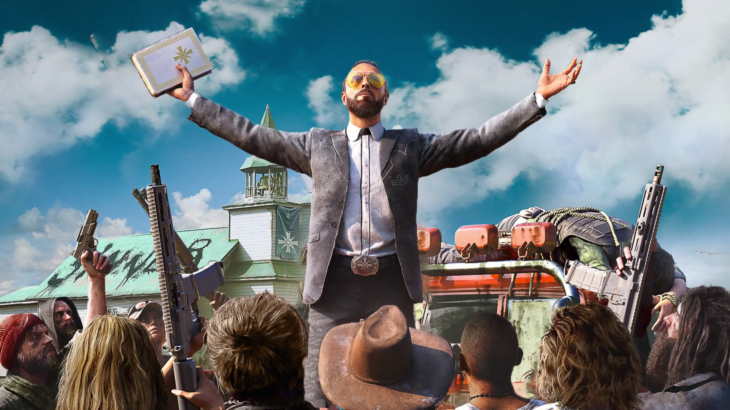 We offer you chapters
We offer you chapters
Now the Jew is in all corners and at all levels of power
Now the Jew is in all corners and at all levels of power
Now the Jew is in all corners and at all levels of power. The Russian person sees him at the head of the capital city of Moscow, and at the head of the Neva capital, and at the head of the Red Army, the most perfect mechanism of self-destruction.0003
Walter Scott’s Idol
Walter Scott’s idol
There were legends about him. Lots of legends. About his courage. Unwavering courage. Dashing fighting prowess. The ability to protect every soldier. “I would be ashamed,” he will say to P.I. Bagration, “to propose a dangerous enterprise and concede the execution to another.” For
Indro MONTANELLI (edited by Erwin Lessper) ICON SAN VITTORE
Henry MONTANELLI (arranged by Erwin Lessper)
ICON SAN VITTORE
My story began in March 1944, on the day that His Excellency General della Rovere, a close friend of Marshal Badoglio and technical adviser to the British General Alexander, was brought to
Chapter XIII «Idol of the Crowd»
Chapter XIII «The Idol of the Crowd»
The ringing of bells and festive bonfires The English people from the very beginning did not want to accept the idea of the marriage of Charles with the infanta.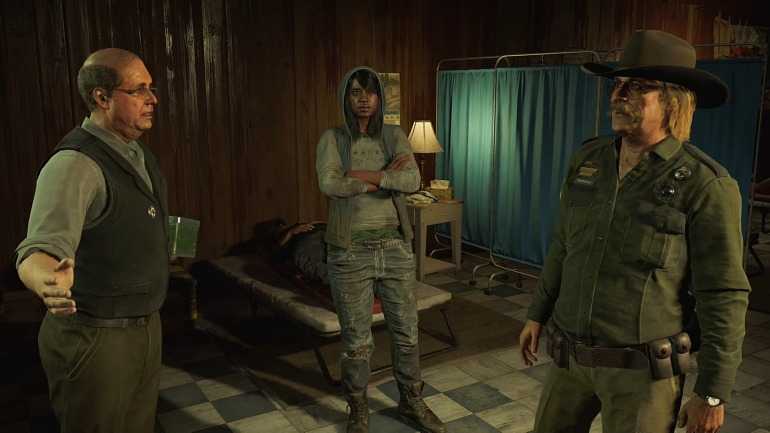 Such a marriage meant the strengthening of the “papists”, and over time, the death of Protestantism and the national church, the penetration of a huge
Such a marriage meant the strengthening of the “papists”, and over time, the death of Protestantism and the national church, the penetration of a huge
«You are a deity, you are my idol!»
«You are a deity, you are my idol!»
Olova from Kalman’s operetta, perhaps, accurately express my ecstasy in relation to «the best friend of the Soviet children.» Having dealt with the oppositionists, Stalin turned the modest post of general secretary into the highest post
Idol of emigrants
The idol of emigrants
Now let’s move on to one of the most hyped figures of the Russian political emigration of all time — Alexander Solzhenitsyn. Of the Russian writers, he is better known in the West than Leo Tolstoy. Among emigrants, as well as among domestic dissidents and
Kumir tov.

